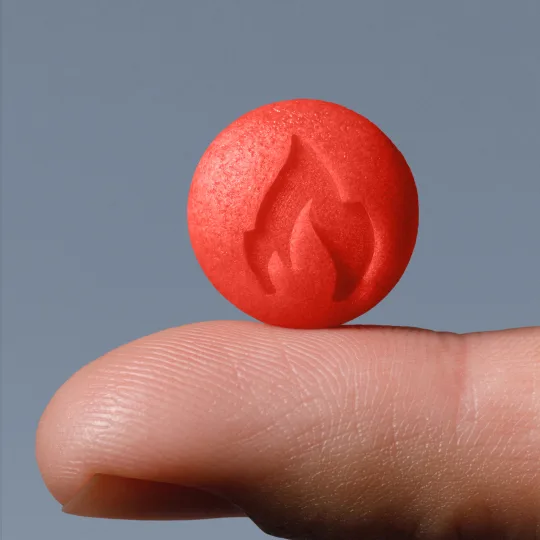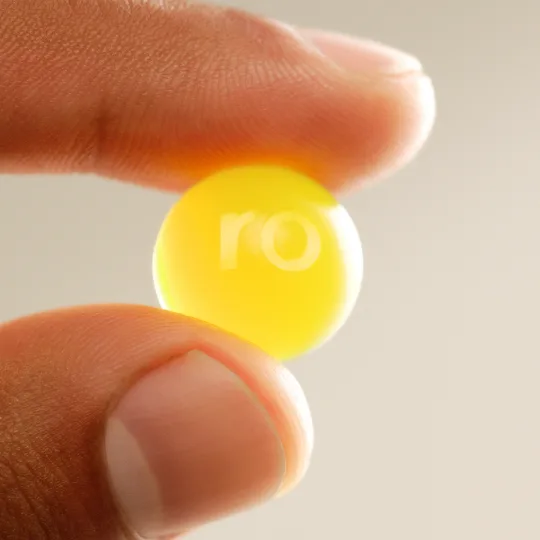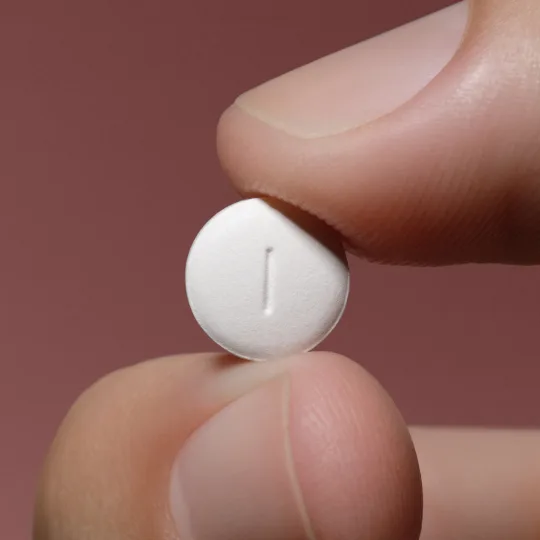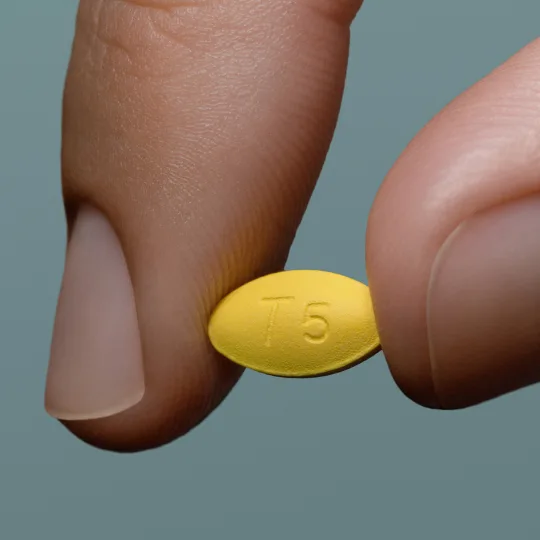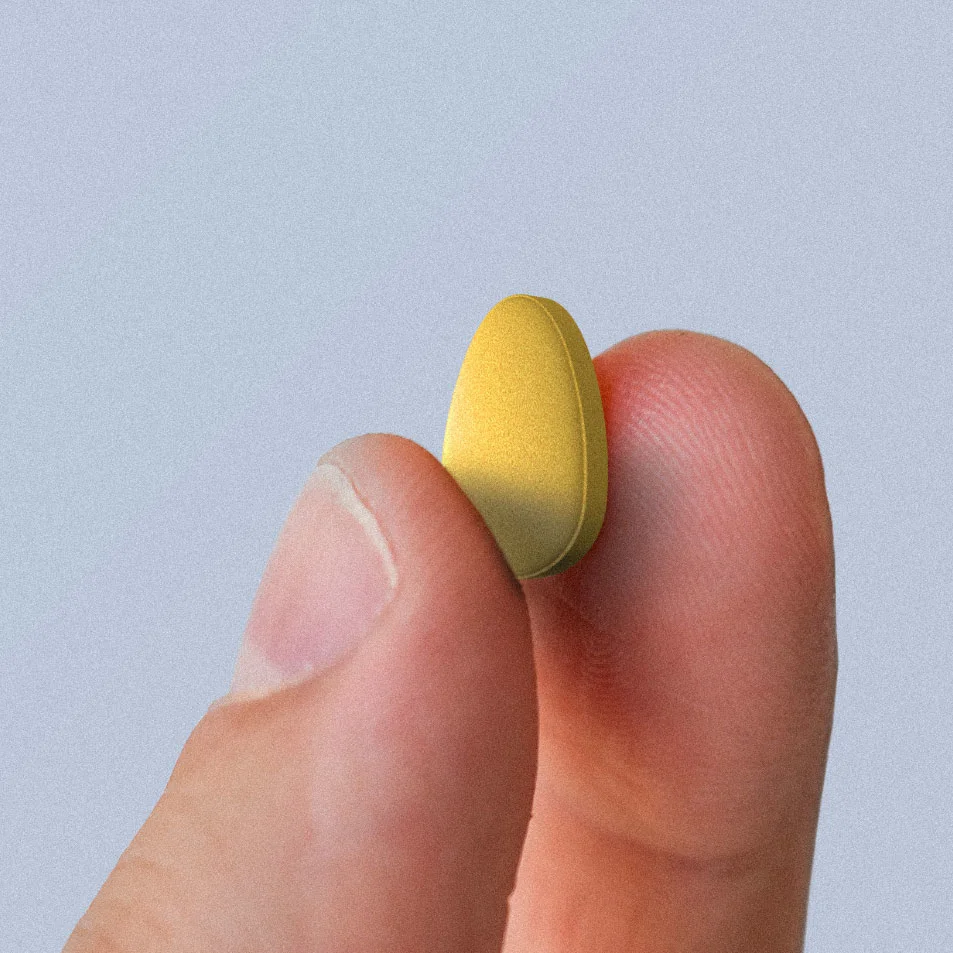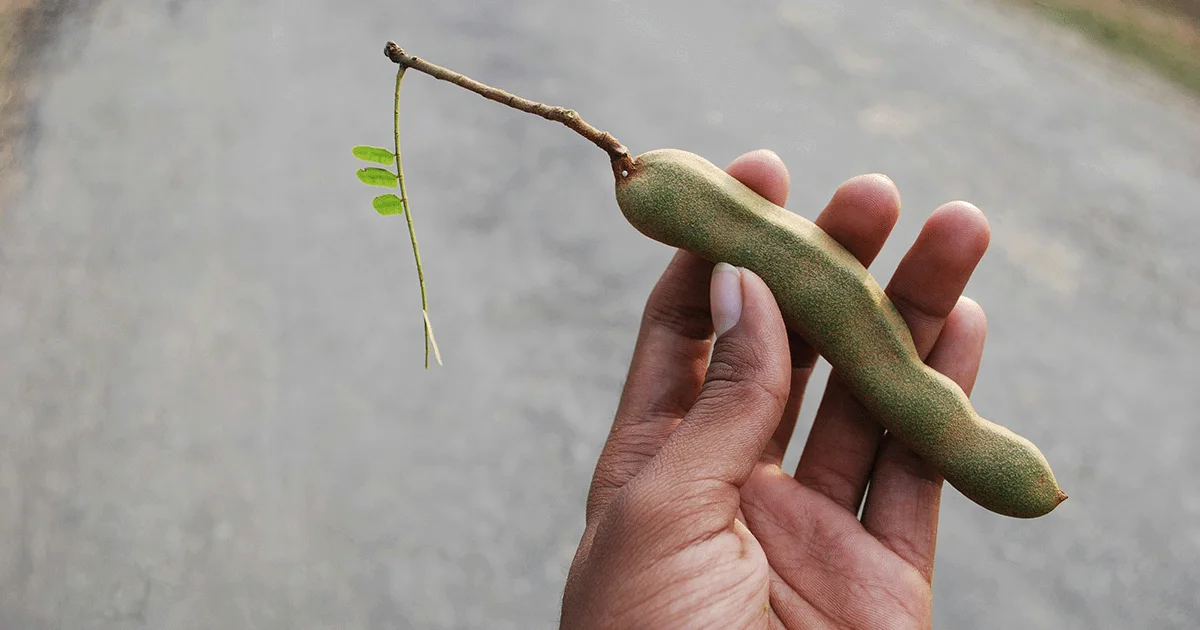Key takeaways
The benefits of cloves sexually may include boosting testosterone levels, which may enhance sex drive and performance.
Clove oil has a numbing effect that might help men last longer during sex, but it can also cause skin irritation. Check with your healthcare provider first.
Combining cloves with honey may provide antioxidant benefits that support sperm health and fertility.
Here's what we'll cover
Key takeaways
The benefits of cloves sexually may include boosting testosterone levels, which may enhance sex drive and performance.
Clove oil has a numbing effect that might help men last longer during sex, but it can also cause skin irritation. Check with your healthcare provider first.
Combining cloves with honey may provide antioxidant benefits that support sperm health and fertility.
Certain foods and spices are considered to be natural aphrodisiacs, thought to enhance sexual desire, performance, and pleasure. One such example is cloves, a well-known spice with a warm and spicy-sweet aroma that may improve men’s sexual health. But what are the sexual benefits of cloves, actually? And can they really make all that much of a difference in the bedroom?
While research on the effectiveness of cloves as an aphrodisiac is ongoing, some evidence suggests incorporating the spice into your diet may spice up your sex life. Keep reading to learn more about the benefits of cloves sexually as well as for health overall—plus, what to keep in mind if you ultimately decide to give the ingredient a go.
What are cloves?
Cloves are the flower buds of the tropical evergreen clove tree (Syzygium aromaticum) that, when dried, become the small, brown, nail-shaped spice commonly found in kitchens worldwide. While they’re known for their intense and slightly sweet flavor, cloves’ uses extend beyond the culinary space. In fact, they have a long history of use in traditional medicine and have historically been used to relieve pain, ease digestion, and fight infections.
Benefits of cloves sexually
Cloves are rich in nutrients with antioxidant properties that may benefit men’s sexual health in many ways, from improving blood circulation to boosting libido. Keep in mind, though, that a lot of the studies on cloves have involved animals. Meaning, more research is needed to truly understand the potential benefits of cloves sexually (and for overall health) for humans. Still, here are a few ways cloves could enhance your sexual experience.
May increase blood flow
Cloves contain eugenol, an antioxidant compound that relaxes blood vessels and may improve circulation. By enhancing blood flow to the penis, cloves may heighten responses to touch and help achieve and maintain firmer erections during sexual activities. A 2020 animal study showed that locally injected eugenol improved erectile function in diabetic rats, which could mean there are similar benefits for men with erectile dysfunction (ED).
May boost libido
Cloves can stimulate the production of sex hormones, such as testosterone, which may increase libido and sex drive and improve sexual performance. In one animal study, administering low doses (15 mg/kg) of clove oil extract to male mice for 35 days increased testosterone levels. However, higher doses of the extract ended up decreasing testosterone levels in the mice, suggesting dosage is an important factor in the effects of cloves on sex hormones.
Another animal study found that 50% ethanolic clove extract significantly increased the sexual activity of male rats without causing adverse side effects. Again, while these animal studies are promising, more research is needed to determine the impact of cloves on human hormone levels and libido.
May help with premature ejaculation
As the name implies, premature ejaculation (PE) is when climax occurs earlier than you or your partner would like, typically within 1 minute of starting to have sex (though there is no standard accepted time cutoff for PE). While there are already various treatments to help you last longer in bed—e.g. prescription medication or over-the-counter wipes, both of which you can get through Ro—cloves might also be able to address the condition.
Eugenol, the main compound in clove oil, has been shown to have numbing properties that may desensitize the skin. So, the thinking is that the ingredient’s local anesthetic effect could have the power to reduce overstimulation, prolonging pleasure and delaying ejaculation.
A small study of 22 men with PE found that applying topical 1% clove oil gel 10 minutes before sexual intercourse improved the time between penetration and ejaculation. Again, though, this study was small—plus, there are risks associated with topical application of clove oil (e.g. skin irritation). So, you should avoid smearing on clove oil (or any other new products) down there before talking to your healthcare provider.
May improve sperm count and motility
The antioxidant and hormone-boosting properties in cloves may also improve male fertility. A 2021 animal study looked at the reproductive effects of water-based clove extract in 20 male rats and found the rats who ingested the clove extract experienced an increase in sperm count and motility. While the research examining cloves’ effects in animals is small, this study did show statistically significant results in numerous parameters: testicular weight, serum testosterone, sperm count, and motility.
Have better sex with Ro
Benefits of cloves and honey sexually
If you’ve ever searched for the “sexual benefits of cloves” (which you probably have since you’re reading this article), then you might be curious about the benefits of cloves and honey sexually. After all, social media (see: TikTok) is full of content about the supposed sexual power of cloves, honey, and oranges. So do these ingredients work synergistically to improve sexual health and function?
Honey’s reputation as an aphrodisiac stretches back centuries, with some cultures associating honey with increased fertility. And animal studies suggest honey may improve increase testosterone levels, boost sperm count, and improve erectile function. Because of both ingredients' potential effects, it's possible a honey-clove mixture could boost sexual stamina and performance.
Ultimately, though, there isn’t enough research on the combined effects of cloves and honey to say with certainty whether the combination can actually improve sexual health. Mixing the two into tea or desserts can make for a tasty treat, so it doesn’t hurt to try if you're curious.
Other health benefits of cloves
Cloves may offer more than a unique flavor and potential perks for your sex life; they have a range of vitamins and minerals that support overall health. Although the scientific literature on cloves’ health benefits is limited, some studies do suggest the spice can deliver some perks.
May support oral health
Thanks to their natural analgesic (pain-relieving) and antimicrobial properties, cloves may support oral health. Diluted clove oil or gel applied topically may offer temporary pain relief for toothaches or sore gums. Cloves also have antibacterial properties that may fight oral bacteria associated with gum disease and cavities.
May strengthen immune system
Cloves contain micronutrients essential for a strong immune system, including vitamins C and K, manganese, and magnesium. Plus, they also have antibacterial and antifungal properties, which may boost the body’s natural defenses.
Regulate blood sugar
Some evidence suggests clove extract may improve how the body uses insulin, helping lower blood sugar levels in healthy people and people with prediabetes. In one small study, participants who took 250 mg of clove extract daily for 30 days reduced their blood sugar levels after eating compared to baseline. Improved blood sugar regulation can have beneficial effects on the body and help prevent the development of diabetes and cardiovascular disease.
Contain antioxidants
Cloves are rich in antioxidants that help neutralize free radicals in the body, protecting against oxidative stress. Oxidative stress damages cells and contributes to the development of chronic diseases, including heart disease and cancer. By helping combat oxidative stress, cloves may contribute to overall health and longevity.
Decrease inflammation
Cloves contain anti-inflammatory compounds, including eugenol and beta-caryophyllene, that may reduce systemic inflammation. Inflammation has been shown to contribute to chronic conditions, such as arthritis and cancer. So, by reducing inflammation, cloves may support joint health and have protective effects against certain conditions that are the result of long-term inflammation in the body.
Are there any health risks of cloves?
Cloves are generally safe for most people when consumed in small amounts. There isn’t enough research to determine whether larger amounts are safe. In other words, moderation is key—as is consulting a healthcare provider before giving cloves (or any new ingredient, for that matter) a go. This is especially true if you have any health conditions or are taking certain medications. Cloves contain compounds that may slow blood clotting, so they may increase your risk of bleeding and caution should be taken for those who are already taking blood thinners.
When applied topically, clove oil or gel can potentially cause irritation and burning on the skin as well as gum damage in the mouth. So, diluting a concentrated clove oil with a carrier oil before applying to your skin is important.
Bottom line
Cloves may enhance men’s sexual function by increasing blood flow, boosting libido, and improving sexual stamina and endurance. While animal studies can show promise in using cloves as a natural aphrodisiac, there isn’t enough research to determine the benefits of cloves sexually and for overall health on humans.
If you’d like to try cloves to improve your sexual health, talk to a healthcare provider, especially if you have underlying health conditions or take certain medications (as some drugs may also contribute to sexual dysfunction). Your provider can offer guidance on potential medication interactions and appropriate usage of cloves for sexual health.
DISCLAIMER
If you have any medical questions or concerns, please talk to your healthcare provider. The articles on Health Guide are underpinned by peer-reviewed research and information drawn from medical societies and governmental agencies. However, they are not a substitute for professional medical advice, diagnosis, or treatment.
References
Batiha, G. E., Alkazmi, L. M., Wasef, L. G., et al. (2020). Syzygium aromaticum L. (Myrtaceae): Traditional uses, bioactive chemical constituents, pharmacological and toxicological activities. Biomolecules, 10(2), 202.doi:10.3390/biom10020202. Retrieved from https://www.ncbi.nlm.nih.gov/pmc/articles/PMC7072209/
Britannica. (2024). Clove. Retrieved from https://www.britannica.com/plant/clove
Hashem, N. M., Hassanein, E. M., & Simal-Gandara, J. (2021). Improving reproductive performance and health of mammals using honeybee products. Antioxidants (Basel, Switzerland), 10(3), 336. doi:10.3390/antiox10030336. Retrieved from https://www.ncbi.nlm.nih.gov/pmc/articles/PMC7996195/
Mishra, R. K., & Singh, S. K. (2016). Biphasic effect of Syzygium aromaticum flower bud on reproductive physiology of male mice. Andrologia, 48(9), 923–932. doi: 10.1111/and.12533. Retrieved from https://pubmed.ncbi.nlm.nih.gov/26840772/
Mohan, R., Jose, S., Mulakkal, J., et al. (2019). Water-soluble polyphenol-rich clove extract lowers pre- and post-prandial blood glucose levels in healthy and prediabetic volunteers: an open label pilot study. BMC complementary and alternative medicine, 19(1), 99. doi:10.1186/s12906-019-2507-7. Retrieved from https://pubmed.ncbi.nlm.nih.gov/31064377/
National Library of Medicine: Medline Plus. (2021). Clove. Retrieved from https://medlineplus.gov/druginfo/natural/251.html
Odetola, A, Adeleye, O, Memudu, A, Ehebha, SE. (2021). Histological, hormonal, and semen quality assessment following ingestion of clove buds (Syzgium aromaticum) on the testes of adult male Sprague Dawley rats. International Journal of Biomedical Imaging. 12(1). Retrieved from https://www.researchgate.net/publication/353091379_Histological_Hormonal_and_Semen_Quality_Assessment_Following_Ingestion_of_Clove_Buds_Syzgium_aromaticum_on_the_Testes_of_Adult_Male_Sprague_Dawley_Rats
Orchard, A., Kamatou, G., Viljoen, A. et al. (2019). The influence of carrier oils on the antimicrobial activity and cytotoxicity of essential oils. Evidence-based complementary and alternative medicine : eCAM, 2019, 6981305. doi:10.1155/2019/6981305 Retrieved from https://www.ncbi.nlm.nih.gov/pmc/articles/PMC6348851/
Pandey, V. K., Srivastava, S., Ashish, Dash, K. et al. (2023). Bioactive properties of clove (Syzygium aromaticum) essential oil nanoemulsion: A comprehensive review. Heliyon, 10(1), e22437. doi:10.1016/j.heliyon.2023.e22437. Retrieved from https://www.ncbi.nlm.nih.gov/pmc/articles/PMC10755278/
Schwarz, P. E. H., Timpel, P., Harst, L., et al. (2018). Blood sugar regulation for cardiovascular health promotion and disease prevention: JACC Health Promotion Series. Journal of the American College of Cardiology, 72(15), 1829–1844. doi: 10.1016/j.jacc.2018.07.081. Retrieved from https://www.ncbi.nlm.nih.gov/pmc/articles/PMC6709577/
Sharifi Olounabadi AR, Khayyamfar F, Kamalinejad M, et al. (2021). Effect of topical clove (Syzygium aromaticum (L.) Merr. & L.M.Perry) gel on premature ejaculation: A pilot Randomized double-blind placebo-controlled clinical trial. Trad Integr Med. Retrieved from https://www.researchgate.net/publication/355102776_Effect_of_Topical_Clove_Syzygium_aromaticum_L_Merr_LMPerry_Gel_on_Premature_Ejaculation_A_Pilot_Randomized_Double-Blind_Placebo-Controlled_Clinical_Trial
Tajuddin, Ahmad, S., Latif, A., & Qasmi, I. A. (2004). Effect of 50% ethanolic extract of Syzygium aromaticum (L.) Merr. & Perry. (clove) on sexual behaviour of normal male rats. BMC Complementary and Alternative Medicine, 4, 17. doi:10.1186/1472-6882-4-17. Retrieved from https://pubmed.ncbi.nlm.nih.gov/15530165/
United States Department of Agriculture. (2019). Spices, cloves, ground. Retrieved from https://fdc.nal.usda.gov/fdc-app.html#/food-details/171321/nutrients
Yilmaz-Oral, D., Onder, A., Gur, S., et al. (2020). The beneficial effect of clove essential oil and its major component, eugenol, on erectile function in diabetic rats. Andrologia, 52(6), e13606. doi: 10.1111/and.13606. Retrieved from https://pubmed.ncbi.nlm.nih.gov/32352181/
Zaid, S. S. M., Ruslee, S. S., & Mokhtar, M. H. (2021). Protective roles of honey in reproductive health: A review. Molecules (Basel, Switzerland), 26(11), 3322. doi:10.3390/molecules26113322. Retrieved from https://www.ncbi.nlm.nih.gov/pmc/articles/PMC8197897/
Meo, S. A., Al-Asiri, S. A., Mahesar, A. L., & Ansari, M. J. (2017). Role of honey in modern medicine. Saudi journal of biological sciences, 24(5), 975–978. https://doi.org/10.1016/j.sjbs.2016.12.010. Retrieved from https://www.ncbi.nlm.nih.gov/pmc/articles/PMC5478293/
Cortés-Rojas, D. F., de Souza, C. R., & Oliveira, W. P. (2014). Clove (Syzygium aromaticum): a precious spice. Asian Pacific journal of tropical biomedicine, 4(2), 90–96. https://doi.org/10.1016/S2221-1691(14)60215-X. Retrieved from https://www.ncbi.nlm.nih.gov/pmc/articles/PMC3819475/.


